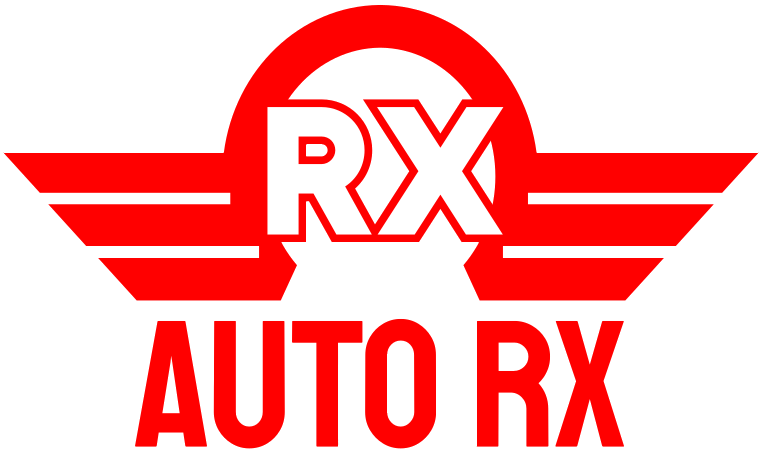- My engine only holds 5 quarts of oil. Will 2 full bottles of Auto-Rx Plus overfill my oil?Auto-Rx Plus is a metal cleaner and does not change your oil viscosity. Your Oil Reserve Is Much Larger Than 5 Quarts And Auto-Rx Plus Will Be Fine
- What is the shelf life of Auto-Rx Plus? Can I still use a bottle that has been sitting around awhile?There is no known limit to shelf life for Auto-Rx® Plus.
- What do I need to know about rotating seals?Oil seals are polymer and metal composite items. Seals are generally mounted at the end of shafts. They are used to keep fluids, such as motor oil, transmission fluid, and power steering fluid inside the object they are sealing. Seals are designed to flex, allowing for a tight fit around the shaft that comes out of a housing, preventing fluids from passing through. Rotating seals are common points of leakage and can usually be purchased fairly inexpensively. However, the placement of some seals make them very difficult to access, resulting in a very labor intensive repair.
- Can Auto-Rx® Plus restore elasticity to seals and stop seals from leaking?The answer to this question depends on the condition of the seals and the cause for the leak. Seals, especially those exposed to heat, stiffen over time. Seals that are torn, hardened with age, or simply beyond their service life need to be replaced. Seals may have a buildup of oxidized contaminant behind them that is in essence a false seal. After Auto-Rx® Plus has gently removed the contaminants fluids can then reach the seal. If there is life left in the seal Auto-Rx® Plus will restore its elasticity, allowing it to once again seal as intended. In the short term some leakage may occur.
- Is Auto-Rx Plus compatible with my turbocharger?Auto-Rx® Plus is compatible with the internal workings of turbochargers, their ball bearings, seals, etc. Turbochargers create a tremendous amount of heat. As a result turbochargers, and superchargers alike, can be quite taxing on motor oil and special lubricants. Life expectancy of a turbocharger is often linked to lubrication failure caused by heat. Auto-Rx® Plus safely removes oxidized contaminant allowing the turbocharger’s lubrication system to work as intended. As a result turbocharger life expectancy can be increased when Auto-Rx® Plus is used as directed.
- What about the PCV valve? Do I need to replace it?PCV stands for positive crankcase ventilation. The purpose of a PCV system is to re-direct blow-by gasses back into the combustion chamber, not allowing them to escape directly into the atmosphere. Some engine designs allow for a simple system, while others are quite complex containing many check valves and hoses. PCV systems should be serviced on a regular basis, especially on engines that are prone to experiencing sludge. A clogged or improperly working PCV system can lead to contamination of motor oil and eventually sludge build up. The makers of Auto-Rx® Plus suggest you always replace the PCV valve (if so equipped) from the original engine manufacturer. OEM PCV valves are engineered for proper flow characteristics; after-market valves may not meet the same specifications.
- When is the Auto-Rx Plus treatment fully completed?After you drain your oil and Auto-Rx® Plus mixture, the fresh oil will rinse away any remaining residue from internal engine surfaces. Although engine benefits have already taken place, it will take another 1,000 miles or so (2,500 miles on a diesel engine) to fully remove the residue, and it will be gone after your next regular oil change. Depending on the amount of contaminants removed, your oil may be very dark after this rinse.
- Is Auto-Rx the same as those solvent flushes found at the auto parts shop?NO! The solvent flushes that you find in the auto parts store use powerful solvents that can be destructive to your engine and seals. These products are “shock solvents.” They can only be kept in the engine a short time and have a tendency to break off large chunks of sludge that can get trapped in the engine oil passages. Clogged oil passages can cause engine failure. Oil is also negatively affected by the introduction of a solvent; it changes the chemistry of the oil, whereas Auto-Rx® Plus does not. Auto-Rx® Plus works slowly, methodically, and efficiently and will take approximately 2,000 miles to do its job. Engine deposits are formed layer by layer; they should be removed layer by layer. Auto-Rx® Plus does exactly that.
- What is the Auto-Rx® Plus Maintenance Plan?The maintenance plan is our Extended Performance Program. It is your assurance that the gains you received from your application will continue. Left unchecked, contaminants and sludge will return. For most engines a maintenance dose of 3 ounces with each oil change will maintain the benefits you received from your Auto-Rx® Plus application. For those engines that are prone to sludge, you should use 4 ounces as your maintenance dose. After a full cleaning has been completed, then you can maintain your engine on just the maintenance dose in the future.
- How many times do I need to apply Auto-Rx® Plus?We have seen customers get extraordinary results after only one application of Auto-Rx® Plus. One application is all that is needed. The exception is sludge-prone engines. Sludge prone engines have manufacturer design problems that leave them vulnerable. Using a maintenance does of Auto-Rx® Plus with each oil change will give you added security that a second cleaning will not be needed. If you’ve experienced sludge in the past, it is important to understand why it occurred and then take steps to prevent it in the future. Servicing the PCV system on a regular basis is one way to be proactive when it comes to sludge prevention.
